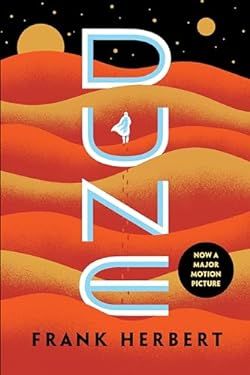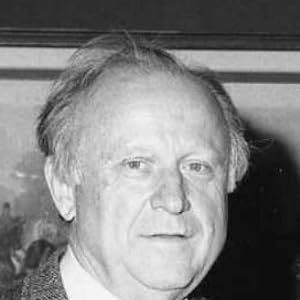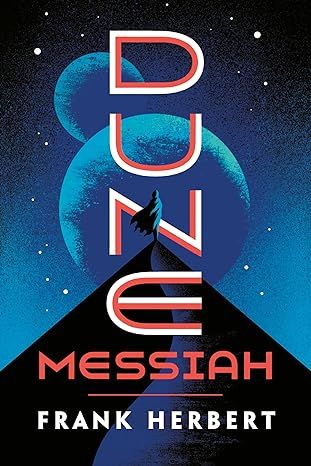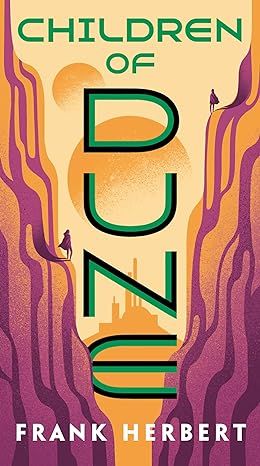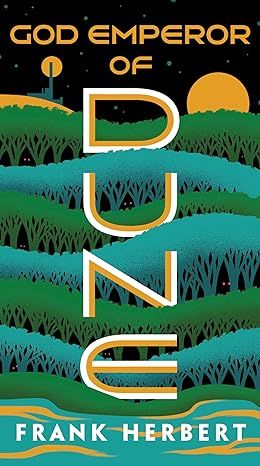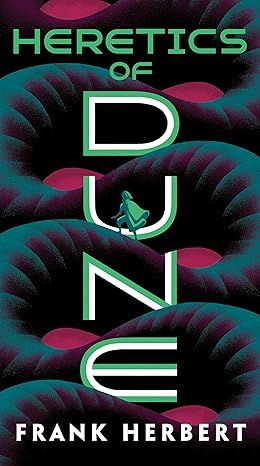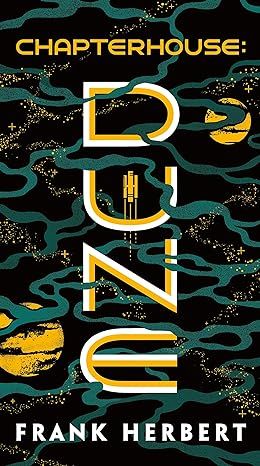Dune (Dune Chronicles, Book 1)
4.7
-
95,481 ratings
DUNE: PART TWO - THE MAJOR MOTION PICTURE NOW IN THEATERS
Directed by Denis Villeneuve, screenplay by Denis Villeneuve and Jon Spaihts, based on the novel Dune by Frank Herbert • Starring Timothée Chalamet, Zendaya, Rebecca Ferguson, Josh Brolin, Austin Butler, Florence Pugh, Dave Bautista, Christopher Walken, Stephen McKinley Henderson, Léa Seydoux, with Stellan Skarsgård, with Charlotte Rampling, and Javier Bardem
Frank Herbert’s classic masterpiece—a triumph of the imagination and one of the bestselling science fiction novels of all time.
Dune is a 1965 epic science fiction novel by American author Frank Herbert, originally published as two separate serials (1963–64 novel Dune World and 1965 novel Prophet of Dune) in Analog magazine. It tied with Roger Zelazny's This Immortal for the Hugo Award for Best Novel and won the inaugural Nebula Award for Best Novel in 1966. It is the first installment of the Dune Chronicles. It is one of the world's best-selling science fiction novels.
Dune is set in the distant future in a feudal interstellar society in which various noble houses control planetary fiefs. It tells the story of young Paul Atreides, whose family accepts the stewardship of the planet Arrakis. While the planet is an inhospitable and sparsely populated desert wasteland, it is the only source of melange, or "spice", a drug that extends life and enhances mental abilities. Melange is also necessary for space navigation, which requires a kind of multidimensional awareness and foresight that only the drug provides. As melange can only be produced on Arrakis, control of the planet is a coveted and dangerous undertaking. The story explores the multilayered interactions of politics, religion, ecology, technology, and human emotion as the factions of the empire confront each other in a struggle for the control of Arrakis and its spice.
Read more
Kindle
$9.99
Available instantly
Audiobook
$0.00
with membership
Hardcover
$18.74
Paperback
$10.90
Ships from
Amazon.com
Payment
Secure transaction
ISBN-10
0441013597
ISBN-13
978-0441013593
Print length
704 pages
Language
English
Publisher
Ace
Publication date
August 02, 2005
Dimensions
5.4 x 1.2 x 8.2 inches
Item weight
1.14 pounds
Frequently bought together
Popular highlights in this book
Once, men turned their thinking over to machines in the hope that this would set them free. But that only permitted other men with machines to enslave them.
Highlighted by 25,761 Kindle readers
Deep in the human unconscious is a pervasive need for a logical universe that makes sense. But the real universe is always one step beyond logic.
Highlighted by 16,390 Kindle readers
The concept of progress acts as a protective mechanism to shield us from the terrors of the future.
Highlighted by 15,193 Kindle readers
Product details
ASIN :
B00B7NPRY8
File size :
4205 KB
Text-to-speech :
Enabled
Screen reader :
Supported
Enhanced typesetting :
Enabled
X-Ray :
Enabled
Word wise :
Enabled
Award winners:
Editorial reviews
“I know nothing comparable to it except The Lord of the Rings.”—Arthur C. Clarke
“It is possible that Dune is even more relevant now than when it was first published.”—The New Yorker
“An astonishing science fiction phenomenon.”—The Washington Post
“One of the monuments of modern science fiction.”—Chicago Tribune
“Powerful, convincing, and most ingenious.”—Robert A. Heinlein
“Herbert’s creation of this universe, with its intricate development and analysis of ecology, religion, politics and philosophy, remains one of the supreme and seminal achievements in science fiction.”—Louisville Times
Sample
A beginning is the time for taking the most delicate care that the balances are correct. This every sister of the Bene Gesserit knows. To begin your study of the life of Muad‘Dib, then, take care that you first place him in his time: born in the 57th year of the Padishah Emperor, Shaddam IV. And take the most special care that you locate Muad’Dib in his place: the planet Arrakis. Do not be deceived by the fact that he was bom on Caladan and lived his first fifteen years there. Arrakis, the planet known as Dune, is forever his place.
-from “Manual of Muad’Dib” by the Princess Irulan
IN THE week before their departure to Arrakis, when all the final scurrying about had reached a nearly unbearable frenzy, an old crone came to visit the mother of the boy, Paul.
It was a warm night at Castle Caladan, and the ancient pile of stone that had served the Atreides family as home for twenty-six generations bore that cooled-sweat feeling it acquired before a change in the weather.
The old woman was let in by the side door down the vaulted passage by Paul’s room and she was allowed a moment to peer in at him where he lay in his bed.
By the half-light of a suspensor lamp, dimmed and hanging near the floor, the awakened boy could see a bulky female shape at his door, standing one step ahead of his mother. The old woman was a witch shadow—hair like matted spiderwebs, hooded ’round darkness of features, eyes like glittering jewels.
“Is he not small for his age, Jessica?” the old woman asked. Her voice wheezed and twanged like an untuned baliset.
Paul’s mother answered in her soft contralto: “The Atreides are known to start late getting their growth, Your Reverence.”
“So I’ve heard, so I’ve heard,” wheezed the old woman. “Yet he’s already fifteen.”
“Yes, Your Reverence.”
“He’s awake and listening to us,” said the old woman. “Sly little rascal.” She chuckled. “But royalty has need of slyness. And if he’s really the Kwisatz Haderach ... well....”
Within the shadows of his bed, Paul held his eyes open to mere slits. Two bird-bright ovals—the eyes of the old woman—seemed to expand and glow as they stared into his.
“Sleep well, you sly little rascal,” said the old woman. “Tomorrow you’ll need all your faculties to meet my gom jabbar.”
And she was gone, pushing his mother out, closing the door with a solid thump.
Paul lay awake wondering: What’s a gom jabbar?
Read more
About the authors
Frank Herbert
Frank Herbert (1920-86) was born in Tacoma, Washington and worked as a reporter and later editor of a number of West Coast newspapers before becoming a full-time writer. His first SF story was published in 1952 but he achieved fame more than ten years later with the publication in Analog of 'Dune World' and 'The Prophet of Dune' that were amalgamated in the novel Dune in 1965.
Read more
Reviews
Customer reviews
4.7 out of 5
95,481 global ratings
Charles Scott
5
Zealous mother & enterprising son go camping. He should earn a Boy Scout merit badge in survival.
Reviewed in the United States on November 12, 2019
Verified Purchase
The science-fiction novel, Dune, written by Frank Herbert and published in 1965 might just as easily have provided the precursor literary materials for a "Hallmark Home for the Holidays" screen-play as it would have for any of several "Star Wars" episodes. It is a meaningful, versatile, very adaptable novel. The book is good and offers deeply religious connotations. It provides historical significance, dating back from ancient times, and suggests serious implications for the future, involving social and political stability. Ostensibly, the story follows a doting, overly-protective, single mother who wants only what is best for her son. She takes him on a camping trip, in order for him to win the equivalent of a "Boy Scout" merit badge in survival skills. Basically, his task is to provide food for the family in the wilderness. If he can find the right bait and put it on a hook to catch a fish for dinner, he all but assures himself of attaining the merit badge he seeks. The problem is, they soon discover that the lake has all but dried-up. The waters have receded, or they have been diverted, somehow. Hence, he has to hunt for alternative sources of food. Simple enough, you think. Except, you remember that the novel is pure science-fiction. Things get hairy in a hurry and out of hand very rapidly, and the various outcome scenarios become numerous and unpredictable. The story-line becomes even more interesting later on, when the son decides to attend his first rodeo. Perhaps, the single mother has mistakenly slipped a bottle of "Mescal" Mexican tequila into her back-pack, instead of the "cooking Sherry," which she had intended to bring along on the trip "for medicinal purposes." While cooking over the proverbial open campfire, she must have been sipping some form of potent alcoholic beverage, causing her to dream, and possibly, hallucinate. The manufacturers even put a little grub-worm into the bottles of this particular tequila, out of an abundance of caution as a warning; or for aesthetic reasons, I imagine. Not too unlike, the "green dragon" or the "genie in the bottle," appearing on the label of a libation otherwise known as absinthe. In her dreams, or perhaps because of her vivid imagination, then, the harmless, one-inch, standard-size grub-worm is transformed, becomes magnified, or otherwise enlarged by the mysterious processes of her mind, into a gargantuan monster 5,000 times its normal, original size. This is where the science-fiction part enters the story. Thus, a potential whirl-wind romance is transmogrified into something completely out of this world. It evolves into a tantalizingly amazing and profoundly appealing tale of adventure. Again, I'm reminded of the classic "Star Wars" saga, which first appeared in movie theaters twelve years after the novel, Dune, was first published. In the course of natural events, the mother of the impressionable, young lad fondly reminisces about living in their former home far, far away by incredibly great distances of measurement, somewhere over the curved spectrum of colorfully diffracted light-beams known as a rainbow, beyond eons and eons of cosmic clouds in the time-space continuum, having a normal climate, an abundance of rainfall, mild weather, with clear lakes and cool-running streams, something quite radically different from the dire circumstances in which they presently find themselves. She smiles graciously and is pleasantly reminded of swimming in the ocean like an Olympic athlete; the outdoor public showers on the beach; washing the salty water out of her tousled and tangled hair, rinsing her skin clean and vibrant again; noticing sand in her bikini panties. But now, however it came to pass, she is much more immediately concerned about gang violence and her youth blasted into oblivion by laser-light guns. Even worse, their exposure to harmfully volatile cartridges of electronic cigarettes; risking addiction; and, ultimately, being "vaporized" by an atomizer. Vanishing into thin air. R. Royce rests on a long, weathered wooden pier, the wharf overlooking the inter-coastal water-way from a hidden cove. Here, he goes by the nick-name, "Johnny Questar." He's looking into the deep, clear, greenish-tinted water for a big spear-fish. He recollects parts of a song from way back when, with lyrics that go vaguely something like this: "In the year 2525, if mankind is still alive.... there will be no husbands, you'll have no wife..." "In the year 3535, the Propaganda Prince rules the people for thousands of years.... his ego is huge, and there's nothing too terrible that he fears..." "In the year 4545, robots and androids are running wild.... they can achieve anything, except bear a child..." "By the year 7510, God should make an appearance by then, and have something important to say... for it's a time of evolution and Judgement Day...." "By the year 9595, if mankind is still alive.... there will be no more wars, you'll experience no strife..." "After 10,000 years have come and gone, if mankind is still alive, we have won....we'll be comfortably re-planeted.... you'll mostly feel euphoric and contented..." Thus, he sang the words he remembered and made up the rest as he went along. He could have easily researched the internet for the song , written by Rick Evans in 1964 that became a number one hit by the duo "Zager and Evans" in the summer of 1969 and topped the music charts in both the U.S. and the U.K. He should get it on CD. "We'll move to another galaxy and start all over again, my friend...in this promising age of enlightenment," sang Cornelius Korn, chiming right in. People in the area know him by the popular name, "George Jetsam." "How is it, that people like us always wind up going to strangely exotic destinations such as the Florida East Coast and on remote desert islands?" asked Alexis Sue Shell, now answering to the name "Wilma Flint." "Probably because we've adapted so well to hot air, palm trees, sandy and salty water. The natives are friendly and they generally mind their own business. We love the care-free life-style here. Plus, whenever we're ready, we can sail away." said Raquel Remington, presently known as "Betty Revelle." "Anything on the agenda for today?" asked Royce, suddenly business-like, ever the practical one, and exuding confidence. "I've located the two grandsons from New Jersey," said Korn. "We're meeting them in a nice, quiet setting on the beach this very afternoon, at "Hooligans." "I have good news and bad news for you," confided Royce, later, at the restaurant. "The good news is you are no longer obligated to pay Mugsy Malone what you owe him, since he's met with an unexpected and untimely demise. You probably read about it in the newspapers." "Oh, how did that happen?" asked Kashmir, one of the wise guys he'd met in New Jersey at Mugsy Malone's Atlantic City hotel months ago, feigning innocence. "What's the bad news?' "Some weeks before his sudden departure, Mr. Malone authorized my security firm to make good on the debts his more prolific business associates owe him. In other words, we're here to collect on what you and your cousin, Nehru, haven't yet paid him. With expenses and interest, the amount due today comes to half a million. Can you cover it with cash, certified cashier's check, or a bank-to-bank transfer? " "We're on vacation in South Florida," said Nehru. "We don't normally carry that kind of cash around with us." "Your grandfather was very cooperative. He advised us that you're doing quite a lucrative business in the vicinity. He said that you're involved in the tourism and travel industry. You've been making money hand over fist here," said Royce. He'd certainly done his homework on the pair's financial dealings. "All we have available at the moment are 100 Super Bowl tickets, 100 reservations to Disney World, 100 tickets to Universal Studios, and four re-possessed luxury tour buses, formerly owned by country and western musicians," said Kashmir. He obviously wanted to settle their differences amicably and put an end to the matter at once. Smart. He actually wanted to avoid risky, protracted conflicts with formidable adversaries. "That should cover your overdue account debt. We humbly accept your generous offer," said Royce, indicating Kashmir's metallic briefcase containing legal documentation, tickets, and bus keys. "Thanks for putting us in the tourist business. Trusted associates from the firm will contact you shortly to iron out any details and finalize the transaction." He calmly strolled away, taking the briefcase with him. Kashmir and Nehru felt a sense of relief that there were no complications to derail their plans. "Chump change," George Jetsam said later that evening, as they all began to relax and unwind in their hotel suite. "But it pays the bills and keeps peace in the family." "I think you handled the situation admirably, Royce--I mean, Johnny," said Betty Revelle. "Looks like we're back in business again," said Wilma Flint. "Yes, indeed! Travel agencies to contact, tickets to sell, and busses to lease," said Johnny Questar.
Read more
96 people found this helpful
Chrissy
5
I highly recommend it to all readers
Reviewed in the United States on December 15, 2015
Verified Purchase
Dune A book review by Nathan Poulson Written by Frank Herbert in 1959, “Dune” is an epic adventure of political betrayal, ecological brinkmanship, and messianic deliverance. It won science fiction’s highest awards—the Hugo and the Nebula—and went on to sell more than twelve million copies during Herbert’s lifetime. The mantel piece of sci-fi, Star Wars, owes many of its’ widely popular ideas to Dune. To this day, it is still acclaimed by readers and critics alike as a “science-fiction masterpiece”. I highly recommend it to all readers, as I believe it will put a new perspective on things, deepen your understanding, and excite you to the edge of your seat.
Dune follows the 15 year old boy Paul Atriedies and his mother, Jessica Atriedies in the very distant future. He is an only child of the duke of the Royal house of Atriedies. The house is given the stewardship over the desert planet of Arrakis or “Dune”, which controls the most valuable resource in the universe, the spice. On the planet where water is more valuable than gold, desert sand worms that are bigger than spaceships, life is lived to the extreme. With the spice comes a longer life span, increased perception, and in some cases prediction of the future, but at the cost of being highly addictive. The Harkonens, a noble house that previously owned the planet is intent on revenge and recapturing the spice. The spacing guild, which relies on the spice for navigating their spacecraft, is also intent on preventing anyone restricting or destroying their monopoly on space travel. Paul finds himself thrown into the mystery of Dune and its fierce natives, the Fremen. They think he is the savior their prophecy speaks of - is he destined to be the great preserver of their world or a false prophet to be purged? With multiple factions fighting, deceiving, and pulling strings, you never know quite what to expect in this awesome futuristic battleground.
One side I really like about Dune is that it is not just a distant sci-fi to be enjoyed, but a book to learn and understand from. I really enjoy the themes Herbert establishes in the plot; one of them including the danger of entrusting too much power to a super being. Although his themes might be very serious and almost depressing, I admire that he has the courage to end the story based in reality, instead of a unrealistic Hollywood ending with no depth.
Although the plot was very engaging, at some times the writing style really dragged things down. This can be a real turn off for even patient readers as Frank ambles around in unimportant details describing made up words and the very boring thought process of the characters. This is the one thing that made this otherwise a perfect book. Even though I thought the plot was almost pulling me down, somehow I still enjoyed it through the few sparks of almost perfect harmony when the style actually worked for the story.
What makes Dune so special is the pure atmosphere. You can really tell that Frank put in a lot of effort into his fictional world and society. Even though the story is set in another universe, the planets, the characters, and the motives seem very real. He had the worlds built before he set the plot on them; you can see he studied Greek and Near East history extensively to make this book really come to life.
Most books have characters that you can easily relate to. With Dune, it is a little bit harder to do that. In it, you have a story that instead of a personal account, it is more like a “retelling” and it is sometimes a little harder to relate to the feelings and values of the characters. My favorite character Paul is the most distant character for most of the book. Most of this isolation comes from the fact that people look to him as an idol, even though he still has human flaws. Throughout the book Paul is the character with the most burdens, and in constant pressure that he doesn’t measure up to other’s expectation of him. “They think they have a God, but I am only a man”. In reality he is a character we can all reflect from, he just has some layers in his personality that you have to peel away to really get to the core.
This book is near from perfect, but it still hits home. Frank Herbert has done a difficult thing that combines ancient myths and stories with laser guns and mind control. He was the first one to do it, and the last to do it so well. Even without its deeper meanings, this is still a great read to just casually absorb. I cannot explain to you how amazing this book really is; so experience it yourself and pick up a copy, you will be surprised to what it has to offer.
Read more
4 people found this helpful
Amazon Customer
5
Excellent SciFi
Reviewed in the United States on September 25, 2014
Verified Purchase
TL;DR:
Dune by Frank Herbert takes the reader through an adventure of extremes, from the water dominated cultures of the planet Caladan to the water-starved cultures of the planet Arrakis. The reader is subjected to politics, cultural extremes, ecology, religion, and some very psychedelic interpretations of time. However, the book can be a bit difficult to read as Herbert vigorously exercised his creative liberties and created quite a few words, and then never endeavors to explain these words. With its rich, vibrant worlds, developed characters, and engaging story, I am comfortable calling Dune a must read for anyone who enjoys the science fiction genre.
The Cover:
DuneI really like the cover of this book. The art is minimalistic, powerful, and attractive to the eye. Needless to say, I’m a big fan of simple, clean imagery. It’s difficult for me to say whether I would buy this book based upon the cover art alone or not, because I’ve had knowledge of Dune and it’s story since middle school, but I feel comfortable saying that the cover would have definitely piqued my interest.
The Bad:
- Parts of the book seem needlessly wordy and slow. They are only a few of them, but they seem concentrated near the beginning of the book. This made getting into the story as the book began a bit difficult.
The Good:
-
Herbert does an excellent job creating and developing the Fremen culture and the dangerous, exotic world of Arrakis. From the first time you meet a Fremen, it is clear that their culture values water above all else, and that their reverence for water and the harsh environment in which they exist has trickled down to affect every facet of their existence. The characters in the book are well developed and interesting, each of them with their own emotions, patterns of thought, and internal struggles. The Baron Harkonnen is deplorable and will drive you to hate him. Dr. Yueh will earn your ire, as well as your pity. I think Paul was my favorite example though, as he constantly struggles with his humanity and the awesome powers he gains over the course of the book. But even despite his awesome powers, and the god-like status he attains among the Fremen, Paul remains grounded and realistic in regards to who he is and what he can do.
-
The story is engaging, well paced, and thought provoking. I stayed interested over the course of the entire book, and rarely, if ever, found myself skipping over chunks of text. Herbert does a fantastic job spinning elements of politics, religion, and environmentalism seamlessly into the story.
-
I especially enjoyed the “realism” of the book. This isn’t a space opera filled with with laser gun fights, there are no warm fuzzies of a romantic nature to be found, and Paul is not a shining paragon of humanity. The book may have things of a fantastic nature, such as monstrously large worms, mind-enhancing drugs, and cult-like organizations filled with future-seeing women, but all of these things exist side by side with a gritty, realistic depiction of political strife, the consequences of power, and the human struggle to survive.
The Meh:
- Herbert throws made up words and family names at you rapidly. It can quickly become frustrating, and sometimes even overwhelming to read. This is most frustrating to me when the word is needlessly made up. Kanly? It means vendetta. Richece? Minor houses and wealthy individuals. Both of these words were needlessly created and are never explained within the book.
Synopsis:
Paul’s father, the Duke Leto Atriedes, has been gifted the planet Arrakis by the Padishah Emperor. Normally this sort of gift would be seen as a great boon due to economic opportunities a planet such as Arrakis presents, but this gift is laced with danger, treachery, and subterfuge. Shortly after the House Atriedes relocates from the water-abundant world of Caladan to the arid desert world of Arrakis, the trap is sprung. The Baron Harkonnen, an old enemy of the House Atriedes, assaults Paul’s family. The attack leaves many people dead, the Atriedes claim to Arrakis all but destroyed, and forces Paul and his mother into the arms of the Fremen, who believe Paul to be the savior they have all awaited: the legendary Lisan al Gaib. Many secrets, and many answers lay in the desert, woven into Fremen culture and belief. Using his wits, years of rigorous training, and his new-found place within Fremen culture, Paul will undergo a transformation that is both symbolic and powerful. He will become something more than human, he will become the Kwisatz Haderach.
Read more
8 people found this helpful
Top Frank Herbert titles
View allBest sellers
View all
The Tuscan Child
4.2
-
100,022
$8.39

The Thursday Murder Club: A Novel (A Thursday Murder Club Mystery)
4.3
-
155,575
$6.33

Sapiens: A Brief History of Humankind
4.6
-
140,302
$13.49

The Butterfly Garden (The Collector, 1)
4.3
-
88,556
$9.59

Things We Hide from the Light (Knockemout Series, 2)
4.4
-
94,890
$11.66

The Last Thing He Told Me: A Novel
4.3
-
154,085
$2.99

The Perfect Marriage: A Completely Gripping Psychological Suspense
4.3
-
143,196
$9.47

The Coworker
4.1
-
80,003
$13.48

First Lie Wins: A Novel (Random House Large Print)
4.3
-
54,062
$14.99

Mile High (Windy City Series Book 1)
4.4
-
59,745
$16.19

Layla
4.2
-
107,613
$8.99

The Locked Door
4.4
-
94,673
$8.53
